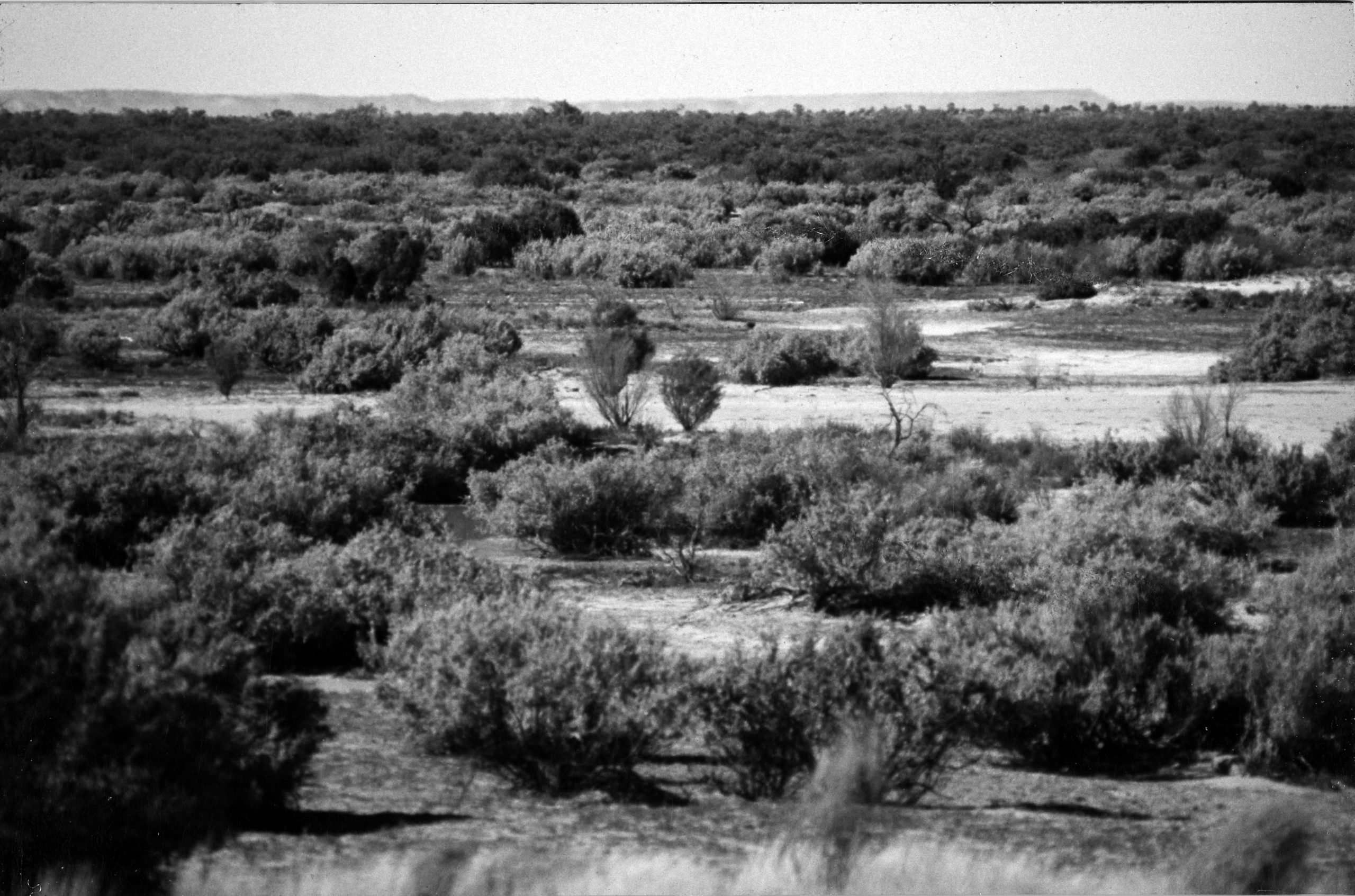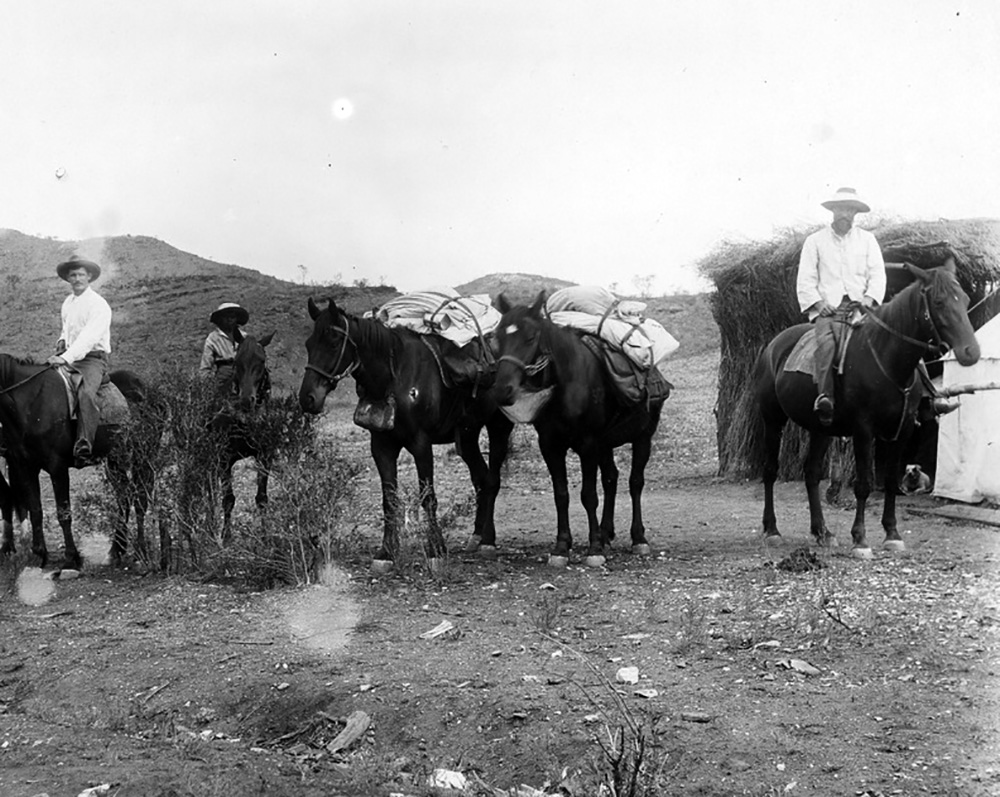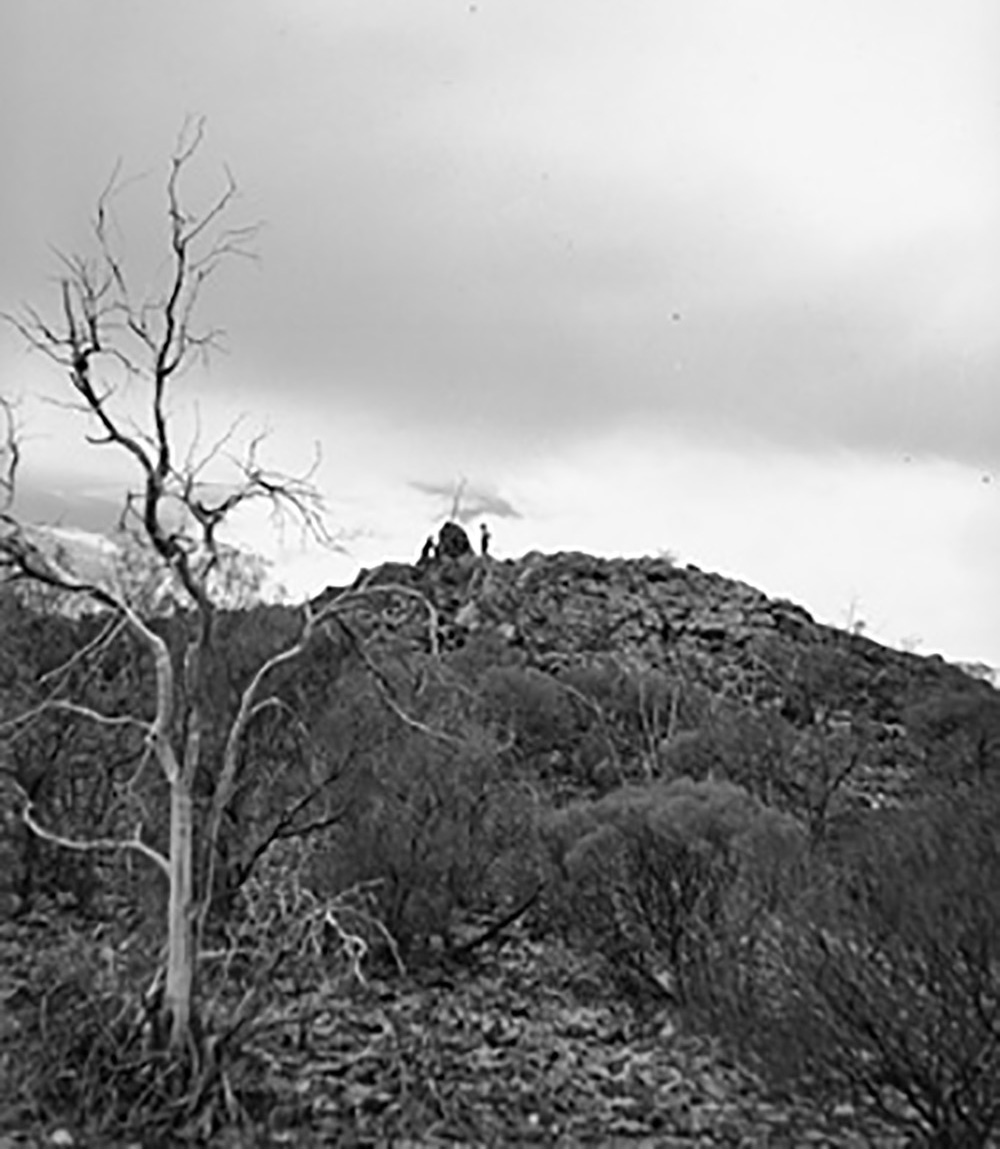Further north, in the front bar of Adavale’s Imperial Hotel, New South Wales police sergeant Roger Gerald Humphrey Douglas took a last, fortifying mouthful of rum from a crystal glass. Through the dusty panes of the window he could see the troop of Queensland Mounted Police who had been seconded to his command lined up outside with their horses. They were hard, bearded men, lean from living rough: Troopers Johnson, Chandler, Smith and Davies. Corporals Elfick and Dunn. The other three were trackers – Ginger, Willy and Bob. A small crowd of locals had gathered to watch the patrol move out.
‘Long’ Douglas, as he was known, stood up, collected his pith helmet and started to head for the door. His nickname was an ironic one, bestowed on him because of his small stature. As if to make up for this handicap he wore his tunic with upright pride, his shoes shining black and silver spurs that jangled with each step.
As Long Douglas started to make his way to the door, however, the publican appeared from around the side of the bar, blocking his path, and in his hand he held a yellow square of paper. He was an outrageously tall man, lanky as a colt, and with neatly trimmed sideburns. ‘Excuse us a minute Sergeant, but I’d be obliged if you could settle your bill before you ride out.’
Long Douglas opened his mouth in surprise, ‘Any expenses incurred will be settled by the New South Wales Police. Kindly direct your invoice to them.’
The publican raised the paper, ‘Will they be pleased to pay for Coq au Vin, some of the ingredients for which we had to send a rider to Charleville?’
‘Well,’ spluttered Douglas. ‘A man must eat.’
‘And Bollinger champagne?’
‘They will not begrudge their champion, far from home and in regions remote, a suitable refreshment after the rigours of the track.’
‘Nevertheless,’ said the publican. ‘I require your cheque for the amount of nineteen pounds, three shillings and sixpence before you step through that door.’
Long Douglas raised himself on his toes. ‘You dare to threaten an officer of the law?’
The publican did not raise his voice but there was an iron glint in his eye, ‘I am not threatening you, but I aim to be paid. If you do not, I can assure you that I will send the word out, making sure that you will not be welcome in any pub in any town in Southern Queensland.’
Douglas sighed, put down his helmet, accepted the invoice and read through it grimly. He reached into an inside pocket, retrieving a folded chequebook. Using the quill and inkpot offered by the other man he leaned on a bar table, still sticky with the residue of yesterday’s beer. ‘This is most inopportune,’ he said as he scratched an amount and his signature, ‘and I can assure you that my former high opinion of your establishment is now very low indeed.’
The publican said nothing, just watched as Long Douglas tore off the cheque and passed it across with deadpan eyes.
With the cheque in the publican’s hand Long Douglas secured his pith helmet on his head and stalked his way out through the front doors, across the creaking, pit-sawn ironbark verandah and outside into the already burning morning sun. His ‘boy’ had brought his horse around and placed a stump to assist his sergeant in mounting. Once Long Douglas’s rather plump behind had settled into the saddle leather, he looked out at the local people who had gathered to watch the patrol ride out – four or five of whom were noticeably drunk. A couple of others were businessmen in hats and waistcoats.
Long Douglas decided that these people would expect him to say a few words, just as a Greek hero might have addressed his fellow Athenians before riding into battle. He sat up straight in the saddle. ‘Dear people of Adavale,’ he said, in a voice pitched low for a man of his small frame. ‘I have in my possession a warrant for the arrest and extradition to the colony of New South Wales of one William Jones, his sister Elaine Phillips, Wu Yan-tou – also known as Fat Sam, and a Gamilaroi Aboriginal man most often known as Jim. This is for the crimes of murder and conspiracy to murder, evading arrest and affray. In addition William Jones faces charges in the colony of Queensland for escaping lawful custody in the town of Eulo.’
There was laughter amongst the spectators at this, for the story of Will Jones’s escape from the Eulo lock-up, under cover of a diversionary fire had kept the bush telegraph humming a few months earlier. One of the drinkers, reminded of this, threw an arm around one of his fellows, and hooted with mirth.
Long Douglas glared at the pair but spoke on regardless. ‘This pursuit will not be an easy one. We know for a fact that the fugitives are armed to the teeth, for apart from the Snider carbines and Colt revolvers they were already carrying, Will Jones and his companions did steal a repeating Henry rifle from the New South Wales police.’ He paused, waiting for a reaction of shock and surprise from the bystanders. There was none, unless the lighting of a pipe or two could be counted as such.
‘We have outsmarted these vicious outlaws,’ he went on, ‘by gathering our forces ahead of their intended march, and will now cast our net southwards, to swoop them up like minnows in our net. Fear not, the force of law cannot be contained. It cannot be thwarted. It cannot be run-away from successfully.’ Now, with a dramatic flourish, Long Douglas turned to his gathered troop, ten men in all, with twice that number of spare horses and loaded packs, and raised an arm. ‘Come, my merry band. Let us ride forth and bring the forces of lawlessness to justice.’
By now the drunks were contorted with laughter, all but rolling around on the ground, but Long Douglas focussed instead on the town’s Church of England minister, a very thin young man and his wife, who were clapping heartily. Two members of the world’s oldest profession, standing oddly beside this pair, also seemed impressed.
As the patrol rode out of town, past the Divisional Board Hall, a row of houses and the first of several itinerant camps, Long Douglas reflected on how proud his mother would be of him, if she could see him leading such a formidable force as this, out into the wilderness. A forlorn place indeed, he decided, as the track wound in and around the channels of Blackwater Creek that lay dry and dusty like an endless claypan.
His father had been a merchant – part owner of a small fleet of coastal traders. With a house at Double Bay his early life lacked for nothing. When the company flagship, the brigantine Progress was lost off Byron Bay, however, Roger Douglas’s father was on board. Raised by his mother, Roger’s childhood was one of books and Sydney Harbour skiffs and fishing for flathead in the little bays near their slowly decaying home.
At first apprenticed to a draper, he joined the New South Wales police force at the age of nineteen. Newly qualified, he was posted to Grafton, in Northern New South Wales, then Bellingen, Taree and Armidale. At just twenty-eight he was promoted to sergeant-in-charge at Coonabarabran. The town suited him, straddling the Western Plains, and with the Warrumbungles a dramatic backdrop.
It was there that Long Douglas first came up against Will Jones. A man who was everything Roger Douglas hated – a larrikin who everyone seemed to like; a terrible thief from whom no horse was safe, and a man born to the bush, an advantage that no amount of experience later in life could seem to match.
As for the murder of which Will Jones was accused, only Long Douglas knew the truth. He took the reins in one hand and fingered the stock of his Winchester rifle in its scabbard with the other. Jones’s presence at that creek bed on that fateful day was a useful accident. It was vital that he did not get taken alive; that he must not live to tell his story.
by Greg Barron
New chapter next Sunday.
Read earlier chapters of Will Jones and the Blue Dog here.
Get a PDF copy of the first book, Will Jones and the Dead Man’s Letter here for free.
Buy a paperback copy of Will Jones and the Dead Man’s Letter here or an eBook here.
Visit ozbookstore.com for more great titles.





